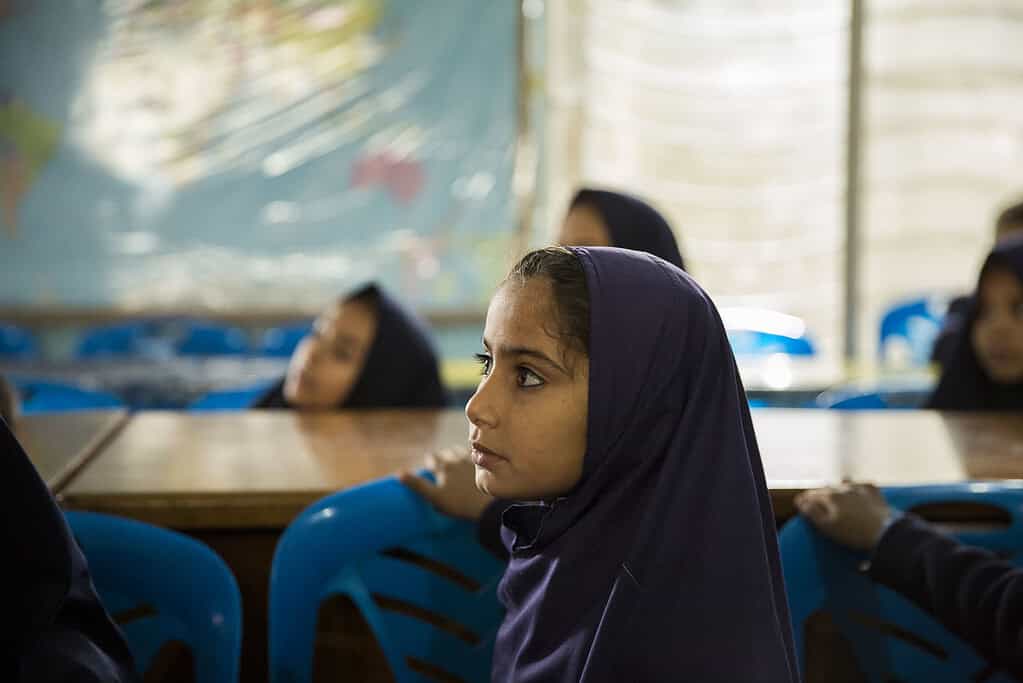A Lesson in Bridging the Education Gap for Families Living in Poverty

- Blog
- Education
It is estimated that one billion people will be without the necessary skills to find a job. Many young children across sub-Saharan Africa and South Asia are living without any kind of formal education. Even with access to schools, students are discriminated due to their gender, class and caste. Additionally, classes are taught by absent, unmotivated and unskilled teachers. This is reflective of a broken education system present in a number of developing countries.
At Acumen, we invest in solutions that fill the gap in access to quality, affordable education and skills training for children and families living in poverty. In late June, we hosted an Education Roundtable, with an intimate group of partners and friends along with our Pakistan education investee Nasra Public School, to discuss challenges and opportunities within the education sector.
In 2012, we made our first education investment in a social enterprise called Hippocampus Learning Centres, which provides quality education to pre-school and primary children in rural India. Since that initial investment, Acumen has successfully raised $4.5 million for the supporting seven social entrepreneurs who have brought innovative market technologies and disruptive business models to bridge gaps in the education sector.
Initially investing in vocational training for low-income customers, we learned that millions in the informal sector were missing the education wave entirely. As a result, our investment focus has evolved to incorporate business models that include development of low-cost private schools, teacher training, capacity building, education technology platforms, financing, content and delivery techniques and skills training programs.
During the roundtable, Amir Fancy, CEO of Nasra Public School (NPS), presented how his low-cost private schools in Pakistan are providing high quality education to students in households living below the poverty line. For many Pakistani children, a good, quality education is a distant dream. But Nasra Wazir Ali, founder of Nasra Public School, saw hope and potential. What started out as a single classroom in her living room in 1950, eventually grew into an Education Trust. Over the course of 67 years, Nasra Education Trust opened five custom-built campuses across Karachi to serve roughly 500,000 children.
In 2013, Acumen stepped in to help the Trust scale with a new financial model directly targeting low-income communities. Drawing inspiration from the legacy of Nasra’s vision for quality education for every child in Pakistan, Nasra Public School was established. In a short span of two years, the partnership with Acumen led NPS to create eight new campuses serving over 2,500 students.
Students at NPS are taught in a co-ed classroom by dedicated and trained teachers. Nasra also focuses on employing women staff, helping to create more trust amongst parents who send their girls to school. At school, children have access to clean bathrooms, drinking water, computer labs and extra-curricular activities, including foreign exchange programs, regional travel excursions, art and drama. These opportunities are part of regular school life at NPS and help to create an entire ecosystem to foster high quality education in Pakistan.
“Acumen gave us the ‘Big Push’ to reach the capacity that we could only imagine of before. Along with the capital, they gave us the skill and expertise needed to sustain and manage the new activities,” says Amir Fancy.
Despite NPS’ success in delivering quality education, achieving scale across the country remains a daunting task. A number of Public Private Partnership (PPP) models have failed to become efficient in Pakistan, given that governments appoint teachers and salaries are not linked to teachers’ performance. The private sector is unable to bring in performance incentive structures due to push back from teacher unions and resistance from management. The challenge lies in finding ways to partner with regional governments to overcome barriers in serving students living in rural towns. This is a stark difference from progress made in India, where Acumen education investees in India are deliberating with the Indian government on innovative collaborations that could spread skill development and curricular building programs across the nation.
Our First Education Fund has now impacted over 208,000 students and we aim to reach another million students through the Second Education Fund, which we launched this year. Beyond capital, technical assistance and human capital training remains essential for social entrepreneurs working in the sector. Collectively, we can begin to bridge the education gap through multi-sector collaborations to bring low-cost, high quality education to the poor in a sustainable and scalable manner.